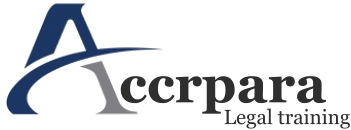Performance reviews are an essential part of managing employee Effective Performance . They provide an opportunity for managers to evaluate employee performance, provide feedback, and identify areas for improvement. However, conducting effective performance reviews can be challenging, especially for new managers. In this article, we will provide tips for managers on how to conduct effective performance reviews.
Set Clear Expectations Before conducting a performance review, it is essential to set clear expectations with your employees. This includes outlining the goals and objectives they are expected to achieve and the key performance indicators (KPIs) they will be evaluated on. By setting clear expectations, employees will have a better understanding of what is expected of them, and managers will have a clear framework for evaluating their performance.
Use Data and Examples When evaluating employee performance, it is essential to use data and examples to support your assessments. This could include data on their productivity, sales figures, customer satisfaction ratings, or other relevant metrics. Additionally, it is important to provide specific examples of where they have excelled or where they need improvement. By using data and examples, you can make your feedback more objective and provide employees with clear insights into their performance.
Provide Balanced Feedback Effective performance reviews involve providing balanced feedback that includes both positive and negative feedback. While it can be tempting to focus on areas where employees need improvement, it is important to recognize their strengths and accomplishments as well. Providing balanced feedback helps employees feel more engaged and motivated and provides them with a clear understanding of their strengths and areas for improvement.
Encourage Employee Participation Performance reviews should not be a one-way conversation. Encouraging employee participation by asking for their input and feedback can help make the process more collaborative and engaging. This can also help employees feel more invested in the process and increase their engagement and motivation.
Create an Action Plan At the end of the performance review, it is important to create an action plan that outlines specific steps the employee can take to improve their performance. This could include setting goals, identifying training opportunities, or outlining specific steps they can take to improve their performance in certain areas. By creating an action plan, employees will have a clear roadmap for improving their performance, which can help increase their motivation and engagement.

Follow Up Following up on performance reviews is essential to ensure that employees are making progress towards their goals and addressing areas where they need improvement. Managers should schedule regular check-ins with employees to monitor their progress and provide additional feedback and support as needed.
Mastering the Art of Performance Reviews: Essential Tips for Managers to Boost Productivity and Engagement:
Effective Performance reviews can be a daunting task for managers, but they are essential for promoting productivity, engagement, and growth within a team. A well-executed performance review not only provides feedback to employees but also serves as an opportunity for managers to evaluate and improve their leadership style. In this article, we will discuss essential tips for managers to conduct effective performance reviews and boost productivity and engagement.
Set Clear Objectives Before conducting a Effective Performance review, it’s essential to set clear objectives that align with the employee’s job responsibilities and the organization’s goals. This will help both the manager and employee focus on areas that need improvement and provide actionable feedback. Setting clear objectives also helps to avoid any misunderstandings or miscommunications that may arise during the review.
Create an Action Plan At the end of the performance review, it is important to create an action plan that outlines specific steps the employee can take to improve their performance. This could include setting goals, identifying training opportunities, or outlining specific steps they can take to improve their performance in certain areas. By creating an action plan, employees will have a clear roadmap for improving their performance, which can help increase their motivation and engagement.
Provide Ongoing Feedback An effective performance review is not a one-time event but a continuous process. Managers should provide ongoing feedback to employees throughout the year, rather than just during the review period. This helps employees to understand what is expected of them, what they are doing well, and what areas they need to improve. Ongoing feedback also ensures that there are no surprises during the performance review, which can lead to frustration and disappointment for the employee.
Use a Balanced Approach A balanced approach involves both acknowledging an employee’s strengths and identifying areas for improvement. While it’s essential to provide constructive criticism, it’s equally important to recognize and appreciate an employee’s contributions to the organization. Managers should focus on the employee’s accomplishments and progress made since the last review and set goals for the upcoming period.
Ask Open-Ended Questions Effective performance reviews involve active participation from both the manager and employee. Managers should ask open-ended questions to encourage employees to share their thoughts, concerns, and ideas. This will help managers gain a better understanding of the employee’s perspective and provide more personalized feedback. Open-ended questions also promote a two-way dialogue, which can lead to a more positive and productive review experience.
Focus on Development Performance reviews are not just about evaluating an employee’s past performance but also about their future development. Managers should work with employees to create development plans that align with the organization’s goals and the employee’s career aspirations. This helps to promote employee engagement and retention while also providing opportunities for growth and development.

Follow Up Finally, it’s essential to follow up on the performance review and ensure that the agreed-upon goals and development plans are being implemented. Regular check-ins can help employees stay on track and provide managers with an opportunity to offer additional support or guidance. Follow-up also helps to reinforce the importance of ongoing feedback and development and shows employees that their growth and success are valued. Effective performance reviews require careful planning, ongoing feedback, a balanced approach, open-ended questions, a focus on development, and follow-up. By mastering the art of performance reviews, managers can boost productivity, engagement, and growth within their team and help employees achieve their full potential.
Conclusion,
Conducting effective performance reviews is an essential part of managing employee performance. By setting clear expectations, using data and examples, providing balanced feedback, encouraging employee participation, creating an action plan, and following up regularly, managers can conduct more effective performance reviews and help their employees improve their performance and achieve their goals.
